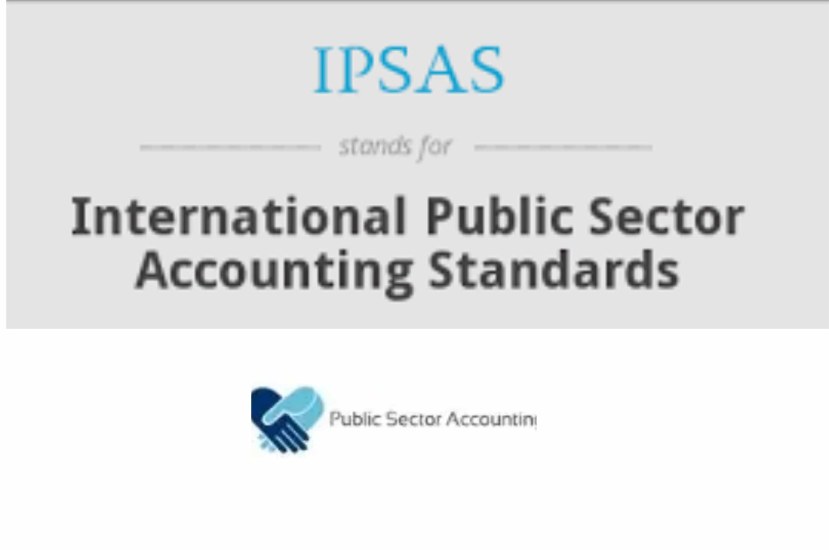Here in public sector accounting guide, we will consider th international public sector accounting standards (IPSASs) to know what is IPSAS, Composition of the IPSASB, Objective of the IPSASB, Scope of the IPSASs, Nature of the IPSASs, Benefits of adopting the IPSAS and Problems on adaptation of IPSAS.
Summary of Contents
WHAT IS IPSAS
These are high quality global financial reporting standards developed by the international public sector accounting standard board (IPSASB) of the international federation of accountants (IFAC) to regulate financial reporting in the public sector and similar institutions (other than government business enterprise (GBEs) in the preparation of general-purpose financial statements.
Read Also: Commitment basis of public sector accounting
Even though the public sector is regulated by diverse rules and regulations as well as political objectives of the government, these standards aimed at standardizing financial reporting in this sector to ensure harmonization and consistency in financial among governments in different countries.
IPSAS MEANING
IPSAS Means “International Public Sector Accounting Standards (IPSAS) are issued by the International Public Sector Accounting Standards Board (IPSASB).
The IPSASB
Composition of the IPSASB
The IPSASB (formerly public sector committee (PSC)) is a board of IFAC formed to develop and issue under its own authority international public sector accounting standards (IPSASs). The IPSASB comprises 18 members, 15 of whom are nominated by the member bodies of IFAC and three of whom are appointed as public members with expertise in public sector financial reporting.
Objective of the IPSASB
The objectives of the IPSASB are to serve the public interest by developing high quality public sector financial reporting standards and by facilitating the convergence of international and national standards, thereby enhancing the quality and uniformity of financial reporting throughout the world.
The IPSASB achieves its objectives by
- Issuing international public sector accounting standards (IPSASs);
- Promoting the acceptance and the international convergence to these standards;
- Publishing other documents which provide guidance on issues and experience in financial reporting in the public sector.
- Issues non-authoritative publications including studies, research reports and occasional papers that deal with particular public sector financial reporting issues.
Scope of the IPSASs
The IPSASs are developed to provide guidance in dealing with transactions and other events in general purpose financial reports. They are designed to apply to the general-purpose financial reports (GPFRSs) of all public sector entities other than government business enterprises (GBEs).
Read Also: WHAT IS THE BASIS OF GOVERNMENT ACCOUNTING?
GBEs apply international financial reporting standards (IFRSs) in preparing their financial statements. The IPSAB defined government business Enterprise to mean and entity that has all the following characteristics:
- Is an entity with the power to contract in its own name
- Has been assigned the financial and operational authority to carry on a business
- Sells goods and services, in the normal course of its business, to other entities at a profit or full cost recovery
- Is not reliant on continuing government funding to be a going concern (other than purchases of output at arm’s length)
- Is controlled by a public sector entity.
Nature of the IPSASs
IPASB provides countries with the option to adopt either cash basis or accrual basis of financial reporting depending on the specific needs and systems of financial operation in place for the government or the countries in question.
For this reason, the IPSASB has developed IPSASs bases on two main accounting basis, Cash basis standards and the accrual basis standards
Cash based standards
The cash basis allowed providers of eternal assistance (especially development assistance) to follow a variety of accounting practices applied by the receivers of the fund. Hence most recipients of external assistance maintain their accounts on the cash basis of accounting hence, the development of a cash standard.
The IPSASB however encourages governments to progress to the accrual basis of accounting and to harmonize national requirements with the IPSASs.
Read Also: WHAT ARE THE LEGAL BASIS OF PUBLIC SECTOR ACCOUNTING
The IPSAS financial reporting under the cash basis of accounting is in two parts, the first part addresses mandatory reporting requirement and the second part identities additional accounting policies and disclosures that an entity is encouraged to adopt to enhance its financial accountability and the transparency of its financial statements.
The standard encourages an entity to voluntarily disclose accrual-based information. An entity in the process of moving from cash accounting to accrual accounting may wish to include particular accrual-based disclosures in the process of transition.
Accrual based standards
The accrual basis IPSAS is based on the accrual principles which is in line with internal financial reporting standards (IFRS). As at the time of compelling this guide there were 32 accrual basis IPSASs and these are as follows;
| IPSAS 1 | Presentation of financial statements |
| IPSAS 2 | cash flow statements |
| IPSAS 3 | accounting policies, changes in accounting estimates and errors |
| IPSAS 4 | the effects of changes in foreign exchanges rates |
| IPSAS 5 | borrowing cost |
| IPSAS 6 | consolidated and separate financial statements |
| IPSAS 7 | investment in associates |
| IPSAS 8 | interest in join ventures |
| IPSAS 9 | revenue from exchange transactions |
| IPSAS 10 | financial reporting in Hyperinflationary economies |
| IPSAS 11 | construction contracts |
| IPSAS 12 | inventories |
| IPSAS 13 | leases |
| IPSAS 14 | events after the reporting date |
| IPSAS 15 | financial instruments: disclosure and presentation – superseded by IPSAS 28 AND IPSAS 30 |
| IPSAS 16 | investment property |
| IPSAS 17 | property, plant and equipment |
| IPSAS 18 | segment reporting |
| IPSAS 19 | provisions, contingent liabilities and contingent assets |
| IPSAS 20 | related party disclosures |
| IPSAS 21 | impairment of non-cash generating assets |
| IPSAS 22 | disclosure of financial information about the general government sector |
| IPSAS 23 | revenue form non exchange transactions (taxes and transfers) |
| IPSAS 24 | presentation of budget information in financial statements |
| IPSAS 25 | employee benefit |
| IPSAS 26 | impairment of cash generating assets |
| IPSAS 27 | agriculture |
| IPSAS 28 | financial instruments: presentation |
| IPSAS 29 | financial instruments: recognition and measurement |
| IPSAS 30 | Financial instruments: Disclosures |
| IPSAS 31 | intangible assets |
| IPSAS 32 | service concession arrangements: grantor |
Benefits of adopting the IPSAS
The adoption of high-quality accounting standard is essential for transparent financial reporting, strong accountability and good governance. The credibility of government financial statements depends on the accounting standards that regulate them. Hence there is the need for government to adopt the use of IPSAS in the preparation of financial statements.
The following are the benefits a government stands to gain by adopting the IPSASs;
- It ensures improvement in internal control, transparency and governance in government financial reporting since the IPSAS required a more comprehensive and precise information on the use of resources and on the status of liabilities to be disclosed.
- It strengthened accountability in the usage of resources through a more frequent, accurate and complete finance reporting.
- It ensures improvement in organizational management, planning and budgeting throughout the organization due to more better accounting practices for estimated of income and expenditure as well as more comprehensive information on assets and liabilities.
- It strengthens the support for results bases management through the provision of more comprehensive information on costs
- It improves consistency and comparability of financial statement as a result of the detailed requirements and guidance provided in each standard.
- It ensures better financial information supports, that is better financial management, better information to donors and countries providing external assistance, better quality and credibility of financial reports. The adoption of IPSASs by governments will improve both the quality and comparability of financial information reported by public sector entities.
Problems on adaptation of IPSAS
- Cost to implement: Adoption of the IPSAS implies a substantial investment in rewriting public sector accounting manuals and instructions by the controller and accountant general department to be use by government entities incorporating the application of the IPSAS at the same time conforming to local regulations education and training will have to be carried out which would also constitute a substantial amount of government outlay as the nation prepares to adopt to IPSAS.
- Availability of Qualified accountants: most of the public sector and government agencies lack the necessary personnel who would carry out the implementation of the IPSAS and management of public accounts based on the IPSAS.
- Resistance: not all government systems and administrative machinery will support IPSAS currently most of the government agencies and departments have the budget and performance monitoring software (BEPEM) operating on cash basis of accounting. Their familiarity with the current system makes it difficult for them to welcome any changes in the government accounting system.





Leave a comment